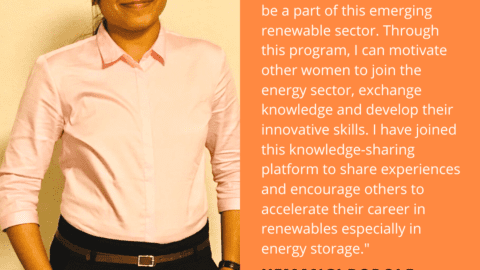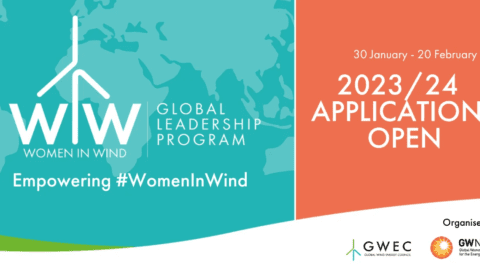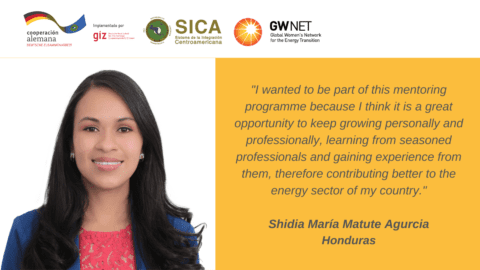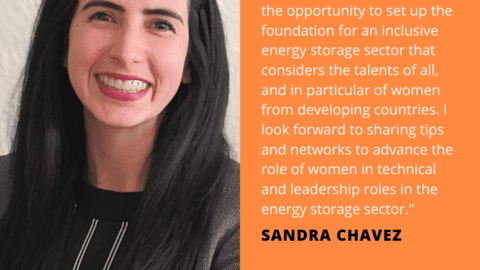GWNET brings you the 12th instalment of the “Meet the Women in Clean Cooking” series which celebrates the work and achievements of the women who are part of the Clean Cooking Mentorship Program. This program is made up of 30 mentee-mentor tandems, with mentees from over 15 countries. Meet Clean Cooking mentor, Vishakha Chandhere, the Founder of Orjabox in India.
1) Tell us a little about yourself. What do you love most about what you do?
I am Vishakha Chandhere from Pune, India. I have worked in the energy and climate change sector for the past 12 years and have personally used green fuels for cooking. I have a liking for cooking and love to introduce people to alternative fuels for cooking. I conduct clean cooking demonstrations and also teach others how to make simple solar cookers. It is very satisfying to know that people in urban and rural India understand the importance of using green fuels.
2) What were your goals when you started working in clean cooking? How have these evolved?
I started with the goal that every household, urban or rural should be able to use at least one alternative fuel source for cooking. Over the past 3 years, I have realized how huge this goal is. I have begun working towards achieving my goal step by step. I hope that I can make some contribution towards making clean fuels accessible and affordable.
3) What are the opportunities for clean cooking in your country?
Over 800 million Indians use traditional biomass cookstoves for their cooking needs and almost 85% of homes have the potential to use at least one clean fuel source. The government has played a pivotal role in increasing access to LPG through its flagship program called Ujjwala. However, the cost of LPG still remains a major barrier. India is a sun-blessed country hence solar cooking has tremendous potential which hasn’t yet been explored completely. Similarly, biogas and biochar are fuels that can be available to all citizens who are shifting to clean fuels.
The main challenge in this sector is giving confidence to the end-user. There are no programs or schemes available to fully support the end-user. Lack of services like good financing schemes, repairs and maintenance of cookstoves, and awareness about the variety of fuels that can be used are some of the other challenges in this sector. We are overcoming these challenges by taking up a systems approach for multiple stakeholders. We are also leading demonstrations, providing services, designing financial schemes, etc. to overcome these challenges. Yet a lot has to be achieved.
5) What advice would you give to women hoping to join the clean cooking sector?
This sector needs a lot of women to come forward and facilitate the wide adoption of clean cooking. Hence my advice to women joining this sector would be to contribute their technical, analytical and creative skills to ensure wide-scale impact.
Read more about GWNET’s mentoring programmes here.
If you are interested in volunteering as a mentor in one of GWNET’s mentoring programmes (which involves approx. 1 – 1.5 hours of engagement per month plus optional participation in knowledge-transfer webinars), kindly fill-in the Mentor Datasheet.











